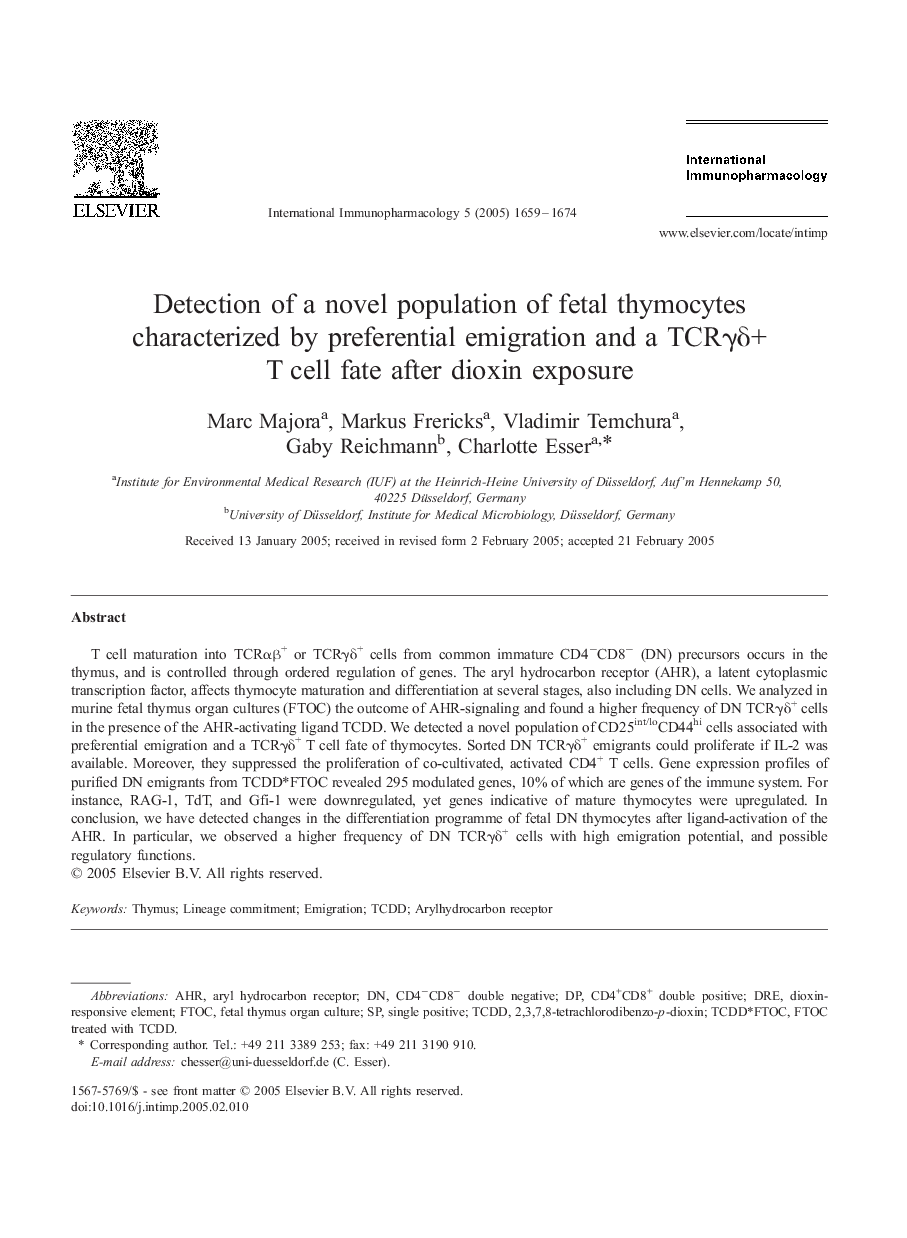| Article ID | Journal | Published Year | Pages | File Type |
|---|---|---|---|---|
| 9007947 | International Immunopharmacology | 2005 | 16 Pages |
Abstract
T cell maturation into TCRαβ+ or TCRγδ+ cells from common immature CD4âCD8â(DN) precursors occurs in the thymus, and is controlled through ordered regulation of genes. The aryl hydrocarbon receptor (AHR), a latent cytoplasmic transcription factor, affects thymocyte maturation and differentiation at several stages, also including DN cells. We analyzed in murine fetal thymus organ cultures (FTOC) the outcome of AHR-signaling and found a higher frequency of DN TCRγδ+ cells in the presence of the AHR-activating ligand TCDD. We detected a novel population of CD25int/loCD44hi cells associated with preferential emigration and a TCRγδ+ T cell fate of thymocytes. Sorted DN TCRγδ+ emigrants could proliferate if IL-2 was available. Moreover, they suppressed the proliferation of co-cultivated, activated CD4+ T cells. Gene expression profiles of purified DN emigrants from TCDD*FTOC revealed 295 modulated genes, 10% of which are genes of the immune system. For instance, RAG-1, TdT, and Gfi-1 were downregulated, yet genes indicative of mature thymocytes were upregulated. In conclusion, we have detected changes in the differentiation programme of fetal DN thymocytes after ligand-activation of the AHR. In particular, we observed a higher frequency of DN TCRγδ+ cells with high emigration potential, and possible regulatory functions.
Keywords
Related Topics
Life Sciences
Immunology and Microbiology
Immunology
Authors
Marc Majora, Markus Frericks, Vladimir Temchura, Gaby Reichmann, Charlotte Esser,
